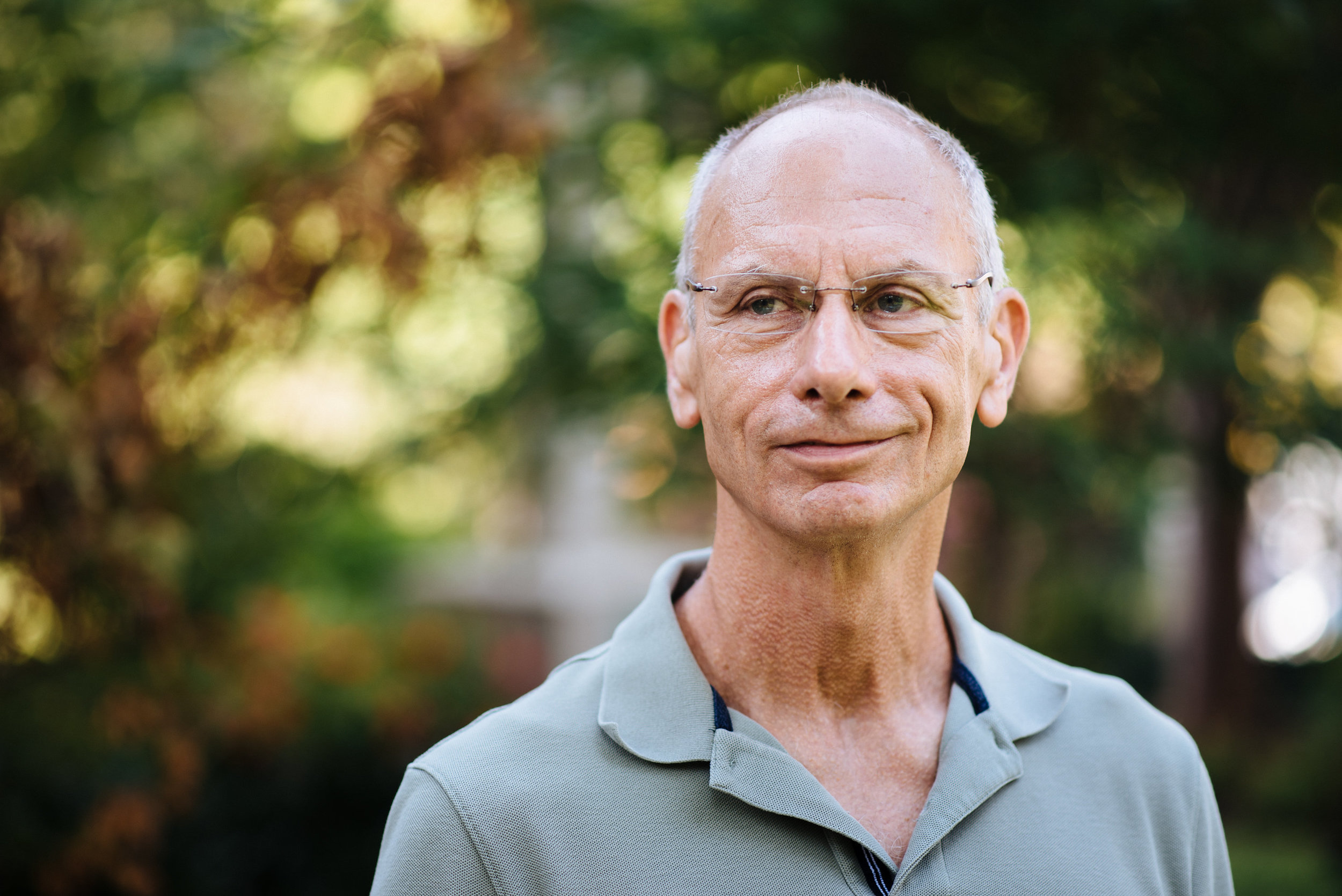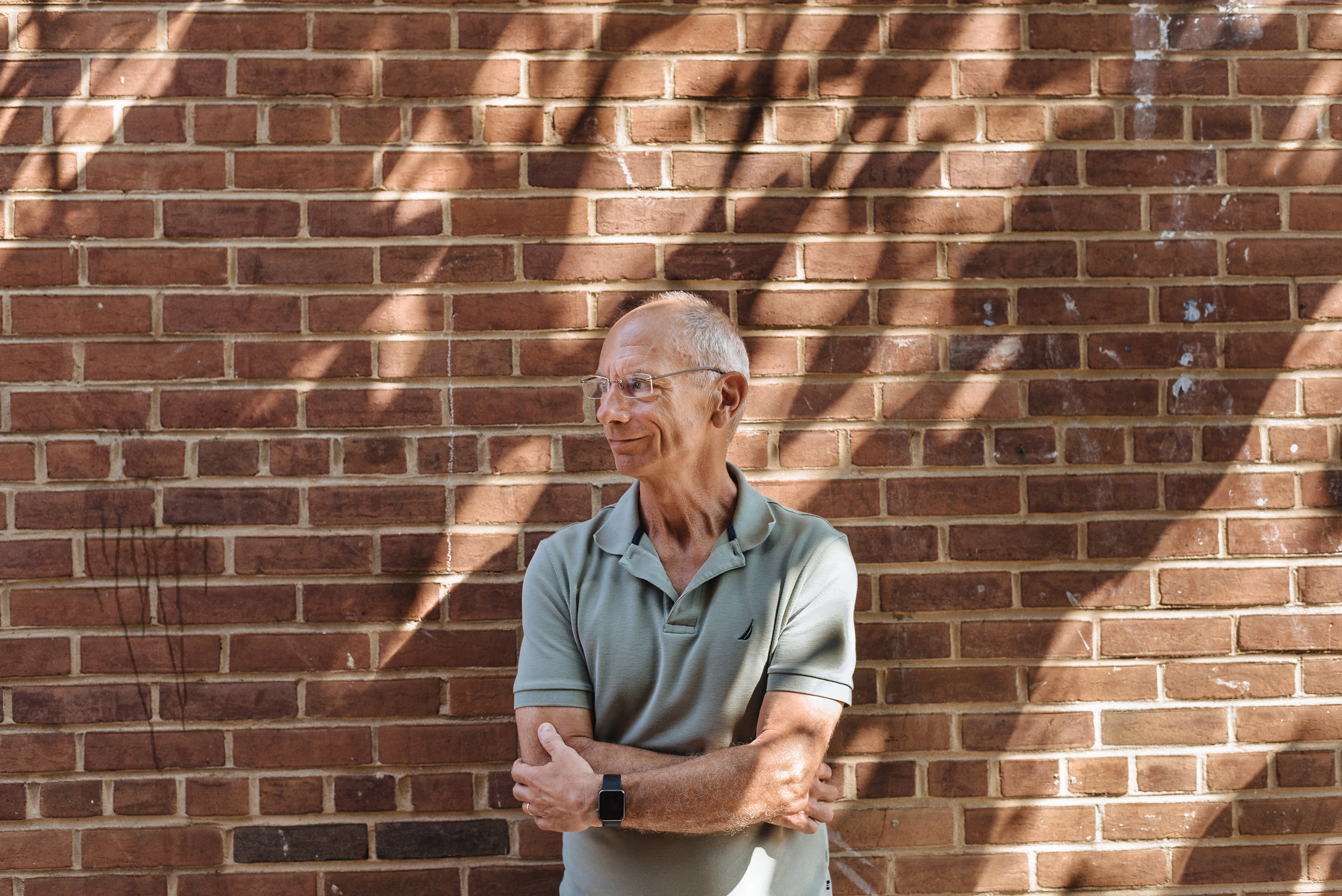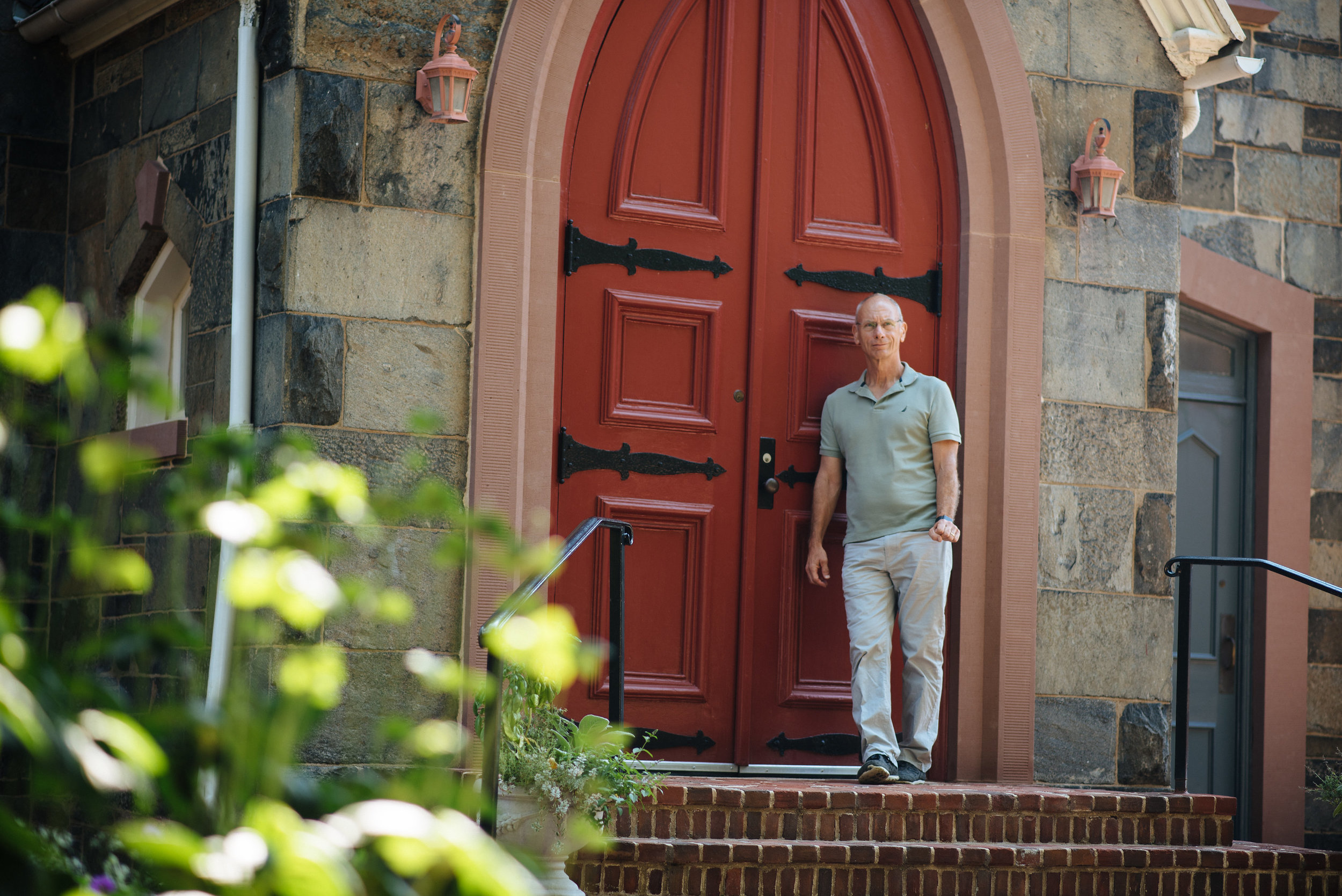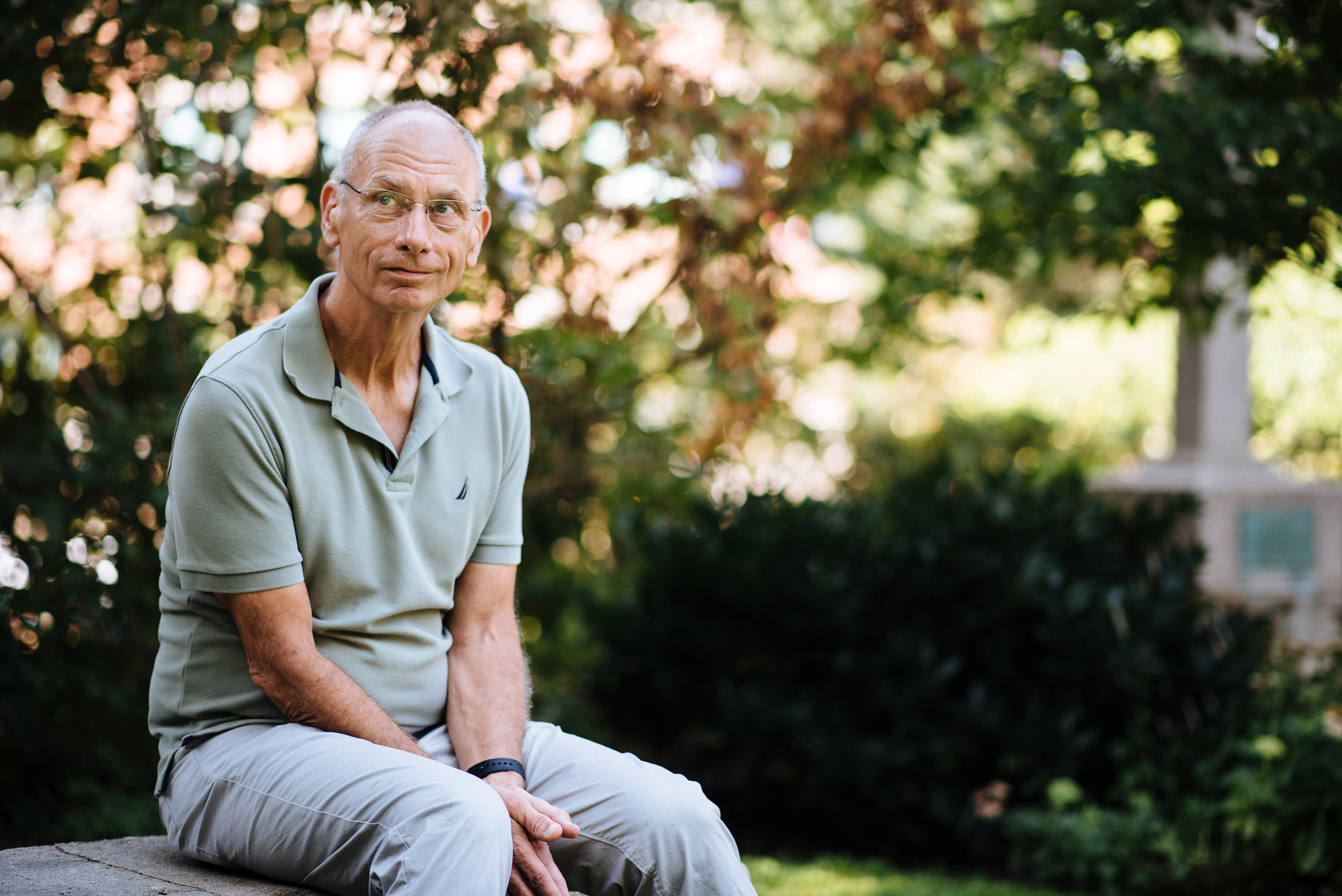‘I Realized They’re Human Beings’
Greg Sherman was a Northwestern graduate, trained constitutional lawyer, and father of two. He died in 2006 on a bench by the C&O Canal, homeless.
‘His family found me four years later when they discovered their father—who suffered from mental illness—had died in DC,’ says Gunther Stern, Executive Director of Georgetown Ministry Center, a local non-profit with a mission to seek lasting solutions to homelessness. ‘The medical examiner pointed them to me because I identified the body. I’m never surprised by someone’s background anymore.’
For nearly 30 years, Gunther has engaged with a population of people most often forgotten or ignored. His interest began in college while working as a cab driver in Georgetown.
‘I used to hang out at Little Tavern on M Street, which is now Sweetgreen, in the middle of the night. All of the homeless folks in the 70s hung out there. I got to know these people and I became curious about mental illness.’
Gunther graduated with a degree in urban studies, but the career path didn’t suit him. He saw a newspaper ad for a position as a Resource Counselor at The Shepherd’s Table in Silver Spring.
He doubts anyone else applied, but it didn’t matter. Gunther knew he found his calling.
‘I’m not sure I fully understood it at the beginning, but over the years I’ve realized that the homeless are human beings. They’re people’s mothers, fathers, sons, daughters, friends. I’ve met many of their family members, and it’s fascinating and heartbreaking.’
GMC has evolved as an organization, but Gunther’s role has remained steadfast. Most essential is his outreach work, walking the streets and finding the homeless—whether they’re in the library, the Starbucks or the alleys—and checking in on them regularly.
‘You try to build a relationship, which is really difficult because people with mental illness don’t trust people.’
Gunther says 100% of the homeless population that he works with is disabled by some sort of brain disorder that affects their insight, logical thinking, or judgement. Greg Sherman was just one of many.
‘That’s become my thing; trying to convince people that we need more and better and different kinds of mental health treatment, including aggressive and sometimes involuntary interventions. We’ve made all kinds of attempts to solve homelessness, and none of them have recognized that the people we’re dealing with are profoundly disabled. It’s a little bit like throwing cancer patients or developmentally delayed kids out on the street.’
Of those suffering from serious mental illness, Gunther says nearly 50% are affected by Anosognosia—the inability to recognize or accurately perceive one’s own mental illness.
‘When you try to talk to those affected by Anosognosia about treatment, they look at you like you’re crazy, and tell you they don’t need treatment. And then once you get past that, if you ever do, there are a lack of resources.’
Gunther says there are 300 psychiatric beds in DC, 200 of which are reserved for court-ordered, forensic cases. Simply put, there isn’t enough room for those who just want to get better.
GMC doesn’t operate as a traditional overnight shelter, rather serving as a drop-in center and winter shelter with a robust street outreach program. Its definition of success is heartbreakingly—and realistically—broad.
‘Some people are never going to come in for help and that’s fine. We’re trying to figure out how to connect them with the appropriate community resources. Sometimes it’s as simple as bringing a pair of socks to someone and hoping they’ll change their socks. I work with a lot of younger people who haven’t been around as long as I have and I’ll see them cry when we have to walk away from situations because there’s nothing we can do. But it’s a fact of life and you do the best you can. The first couple of years I’d lay awake at night worrying about this person or that, but you don’t last long if you take it home with you.’
Gunther sleeps soundly under a roof with four walls, but he remembers every single person who comes through the center in search of the same.
Like Otto, a Swiss citizen with a permanent residency who has been homeless almost as long as Gunther has been with GMC.
‘Otto suffers from a delusion that there’s a curse on him, and anyone who touches him or something he’s touched will be doomed to the same fate,’ Gunther says. ‘He wanders around collecting items that he’ll never let go of, for fear of cursing other people.’
A few years ago, GMC partnered with other agencies and hospitalized Otto. It was there that doctors discovered a serious, likely terminal cancer.
‘Just recently he was willing to return to Switzerland, which was huge for him because it not only involved touching a lot of things, but getting onto an airplane,’ Gunther says. ‘His case worker went with him to Switzerland because he was comfortable with her, and he was placed in a nursing home. He’s 75 years old and probably dying, but he’s much happier there. At least he’s going to die inside, with people caring for him.’
The care that GMC has extended to Otto and so many others has not gone unnoticed. Gunther says he’s humbled by the local support, which began with Georgetown’s residential community and grew throughout the commercial district.
He’ll leave the organization as strong as it’s ever been when he retires in February.
‘Seven years ago I started realizing I’ve been doing this for a long, long time. It’s time to think about what’s next—preferably without a commute involved,’ says the Kensington resident. ‘I have no idea what I’m going to do, but I’m going to talk to a life coach and see if we can’t figure it out.’
In the most basic yet profound way, Gunther has spent three decades doing just that with the homeless, seeing if they can’t figure it out. He’s still working with a woman he first met outside of the Little Tavern all those years ago.
Still trying to figure it out.






